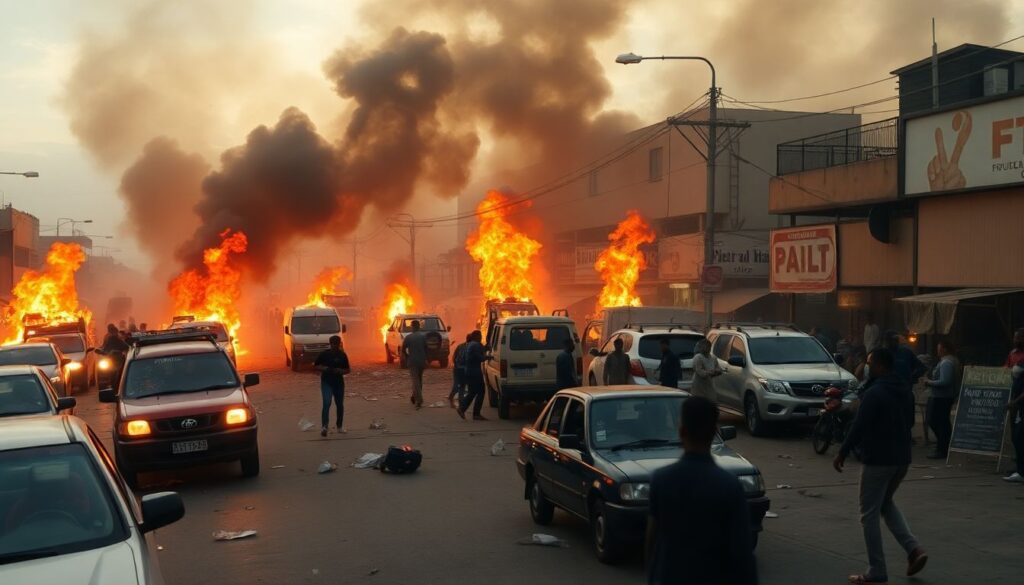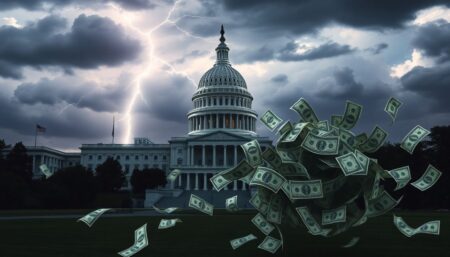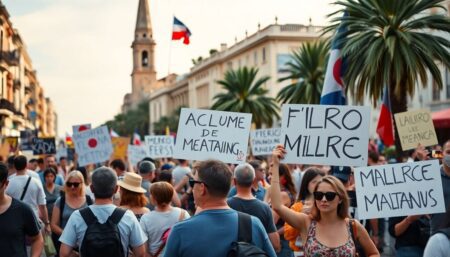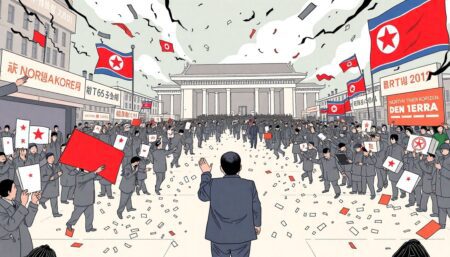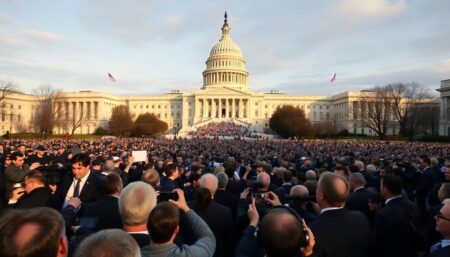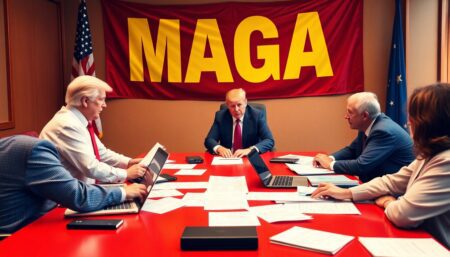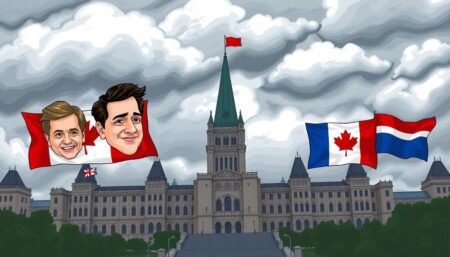Welcome to this in-depth exploration of the recent post-election violence in Mozambique. This article will delve into the chaotic scenes unfolding in the country, the political tensions, and the impact on the economy and daily life. Let’s embark on this journey to understand the complexities and repercussions of this critical moment in Mozambique’s history.
A detailed look into the escalating unrest and its implications for the nation
Imagine the pulsating heart of Maputo, its streets throbbing with a chaos that’s almost palpable. The air is thick with smoke, a grim canvas to the clashes between impassioned protesters and rigid lines of police in riot gear. The chants of the crowd intermingle with the sharp retorts of tear gas canisters being launched, creating a disjointed symphony that echoes through the city.
Vehicles, once symbols of everyday life, now sit ablaze, their black smoke merging with the already leaden sky. The acrid scent of burning rubber and metal fills the nostrils, a harsh contrast to the usual aromas of the bustling marketplaces. Shops, once thriving hubs of commerce, now wear the scars of looting, their wares scattered across the streets like remnants of a hastily abandoned game.
The city, once a vibrant tapestry of colors, is now reduced to a chaotic montage of blacks, grays, and the stark red of angry banners and flags. The sky, usually a bright azure, is now a smoky canvas, painting a grim picture of a city in turmoil. The scenes are stark, unsettling, but they’re also a raw testament to the passionate outcry of a people demanding to be heard.
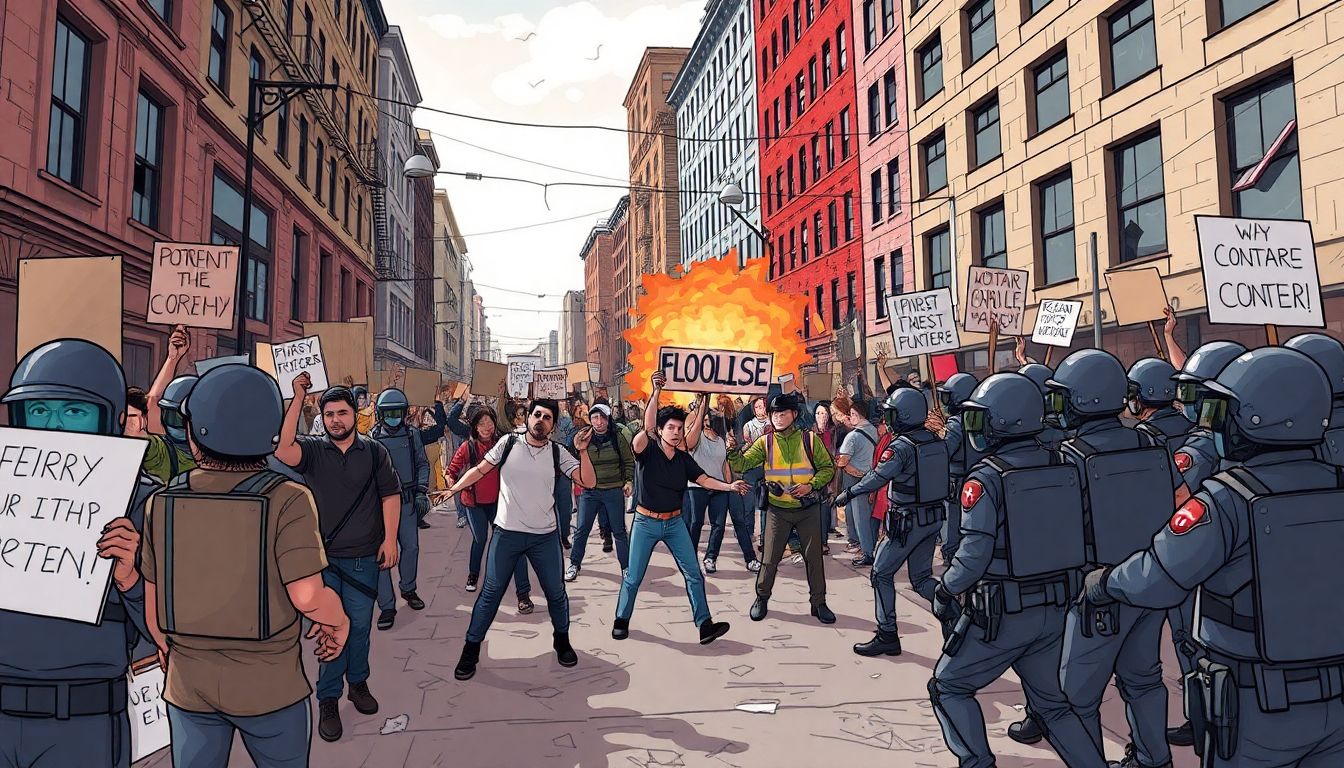
Election Aftermath and Initial Unrest
In the immediate aftermath of the election, the air in Maputo was thick with both tension and anticipation. The National Election Commission (CNE) confirmed what many had expected, announcing that Frelimo, the long-standing ruling party, had secured a decisive victory. The declaration was meant to put an end to the electoral process, but it was merely the beginning of a storm. The city, once a buzzing hub of campaigning and political discourse, now hummed with a different energy—one of uncertainty and apprehension.
Allegations of fraud began to surface almost immediately, casting a dark shadow over the election results. The opposition party, Renamo, was the first to cry foul, claiming that the election had been marred by irregularities and outright manipulation. They pointed to several discrepancies: voter rolls allegedly padded with ghost voters, ballot boxes supposedly stuffed before they even reached the polling stations, and intimidation tactics reportedly used to sway voters. These accusations were not just whispers in the wind; they were amplified by international observers and local activists, who echoed the concerns about the election’s integrity.
As the allegations gained traction, the initial outbreak of violence became almost inevitable. The streets of Maputo, usually bustling with everyday life, transformed into scenes of chaos and unrest. Protesters, largely comprised of opposition supporters, took to the streets to voice their dissent. The protests, initially peaceful, quickly turned violent as clashes with the police became more frequent. The air was filled with the sound of sirens, the smell of tear gas, and the sight of burning tires—a stark contrast to the jubilant atmosphere that typically follows an election.
The violence was not merely a spontaneous outburst; it was a reflection of deep-seated frustrations and divisions within the society. Years of political tension and economic disparity had created a powder keg, and the contentious election results were the spark that ignited it. The unrest was not confined to a single area but spread across various neighborhoods, affecting both businesses and residential areas. The government, in response, deployed additional security forces to quell the violence, but the situation remained volatile. The international community watched with bated breath, hoping for a swift resolution to the crisis. As the dust settled, one thing became clear: the election might have ended, but the struggle for Mozambique’s political future was far from over.
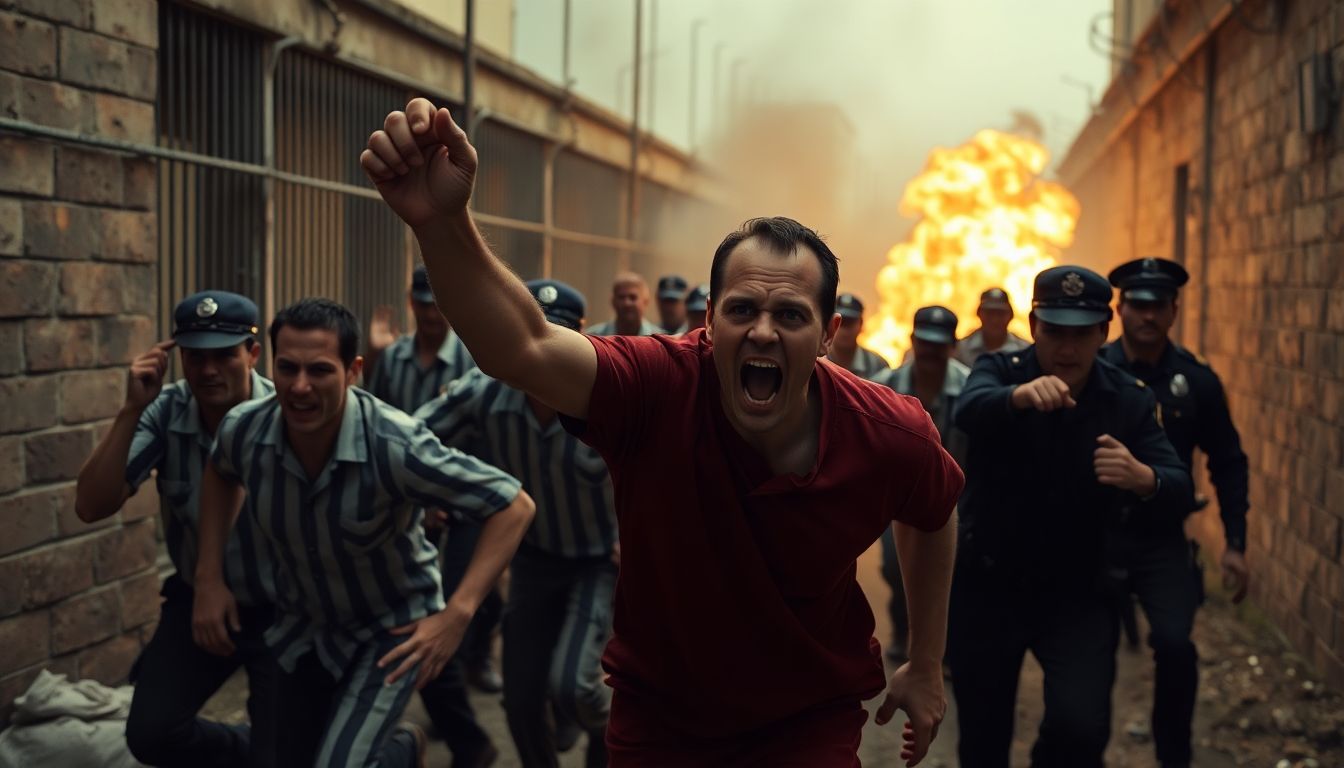
Escalating Violence and Government Response
In the heart of the nation, tensions reached a boiling point as protests turned violent. The initial peaceful demonstrations morphed into chaotic clashes between civilians and law enforcement. The escalation of violence was swift and brutal, with the death toll rising at an alarming rate. Within the first week, reports indicated at least 50 fatalities, a number that would continue to climb as the unrest spread.
The government’s response was severe and unyielding. Authorities implemented a crackdown that saw thousands of arrests. According to official reports, over 3,000 protesters were detained within the first few days alone. The capital city, once a bustling hub of activity, became a eerie landscape filled with armored vehicles and heavily armed police forces. The air was thick with fear and uncertainty as residents wondered what each new day would bring.
Adding to the chaos, a dramatic prison break occurred on the outskirts of the city. Reports indicated that over 100 inmates escaped from the maximum-security facility, further fueling the spread of panic. The escapees, many of whom were considered highly dangerous, dispersed into the city, prompting a massive manhunt. The already strained police forces were stretched even thinner as they attempted to recapture the fugitives while maintaining control over the escalating protests.
The spread of fear in the capital was palpable. Residents barricaded themselves in their homes, uncertain of what or whom to trust. Rumors and misinformation circulated wildly, exacerbating the tension. The government’s attempts to reassure the public fell on deaf ears as the violence continued to escalate. The once-vibrant city streets were now dominated by the sounds of sirens, helicopters, and the occasional burst of gunfire, creating an atmosphere of constant dread.
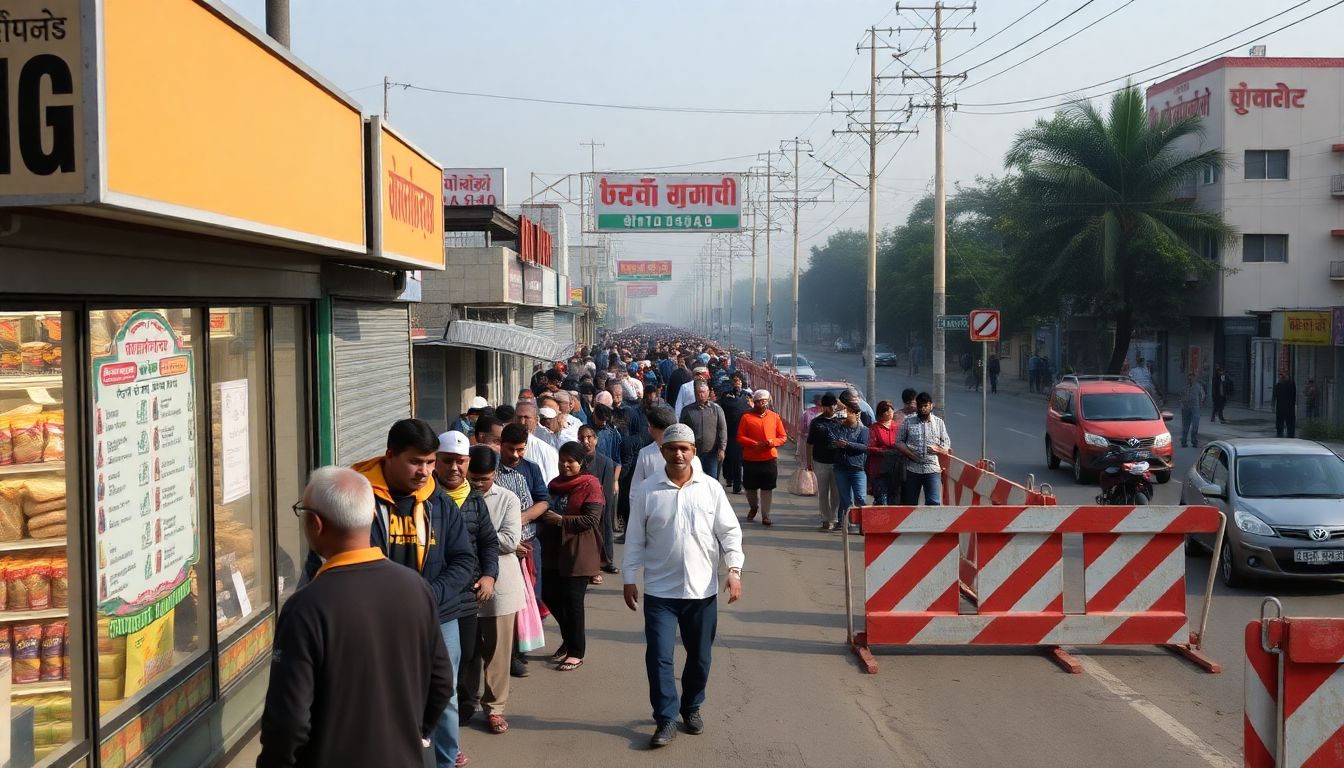
Economic Impact and Daily Life Disruptions
The economic impact of the recent unrest has been profound and multifaceted, touching almost every sector and aspect of the economy. Supply chain disruptions have been particularly severe, with factories shuttered, transportation routes blocked, and labor forces displaced. The halt in production and distribution has left retail shelves empty, causing immediate price hikes and setting the stage for longer-term inflation. Key industries such as manufacturing, agriculture, and tourism have been significantly affected, leading to a ripple effect throughout the economy.
The unrest has also led to the targeting of foreign companies, further exacerbating the economic downturn. Many international firms have temporarily closed their operations or even decided to pull out of the country entirely, taking with them valuable jobs and investments. This exodus has not only contributed to the rising unemployment rates but also sent a chilling message to potential investors, jeopardizing the country’s long-term economic prospects.
Inflation has become a major concern as the unrest continues. The disruption in the supply of goods and services has led to a decrease in supply, driving up prices. Additionally, the uncertainty and risk associated with the unrest have led to a depreciation of the local currency, making imports more expensive and further fueling inflation. This vicious cycle has left many citizens struggling to afford basic necessities as their purchasing power dwindles.
The impact of the unrest on daily life has been stark and immediate. Citizens face numerous challenges, including:
- Food and fuel shortages: Essential supplies are often scarce or unavailable, leading to long queues and rationing.
- Power outages: Damage to infrastructure and disruptions in service provision have resulted in frequent blackouts.
- Limited access to services: Healthcare, education, and other public services have been disrupted, leaving many without access to vital resources.
- Insecurity: The unrest has led to an increase in crime and violence, creating a climate of fear and uncertainty.
The combination of these factors has made daily life a struggle for many, with the most vulnerable populations often hit the hardest.
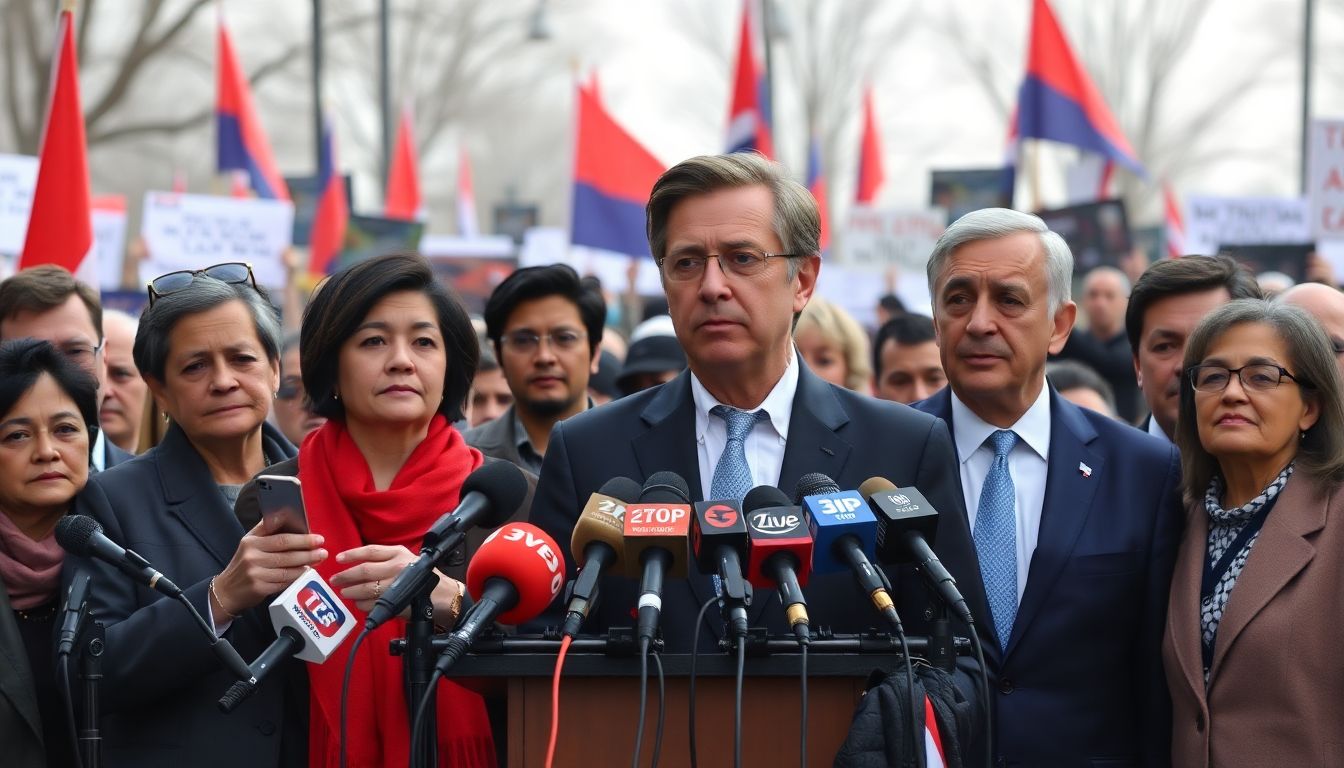
Political Tensions and International Reactions
Mozambique, a country rich in cultural heritage and natural resources, has been grappling with escalating political tensions that threaten its stability. The opposition has been vocal in its accusations against the ruling party, Frelimo, alleging corruption, mismanagement of resources, and human rights abuses. These accusations have sparked widespread protests and calls for reform, further exacerbating the political divide.
The international community has not been silent on the matter. Observations from global bodies and human rights organizations have noted several concerning issues:
- Suppression of dissenting voices, including journalists and activists
- Electoral irregularities that have favored the ruling party
- Inadequate responses to the insurgency in the northern Cabo Delgado province
These observations have raised alarms about the state of democracy and governance in Mozambique.
The potential long-term implications of these political tensions are multifaceted and severe. Prolonged instability could:
- Deter foreign investment, hindering economic growth
- Exacerbate poverty and inequality, fueling further unrest
- Weaken state institutions, leading to a breakdown of law and order
Moreover, the conflict in Cabo Delgado, which has already displaced hundreds of thousands, could intensify, drawing in regional and international actors.
To mitigate these risks, urgent steps must be taken. Dialogue between the ruling party and the opposition is crucial to address grievances and work towards a more inclusive political environment. The international community can play a pivotal role in facilitating this dialogue and encouraging reforms that strengthen democratic institutions and promote human rights. Failure to address these tensions could plunge Mozambique into a deeper crisis, with repercussions far beyond its borders.
FAQ
What triggered the post-election violence in Mozambique?
How has the unrest affected the economy and daily life in Mozambique?
What is the current situation with the escaped prisoners?
How have international observers reacted to the election and subsequent violence?
What steps can be taken to restore peace and stability in Mozambique?
- Address the allegations of electoral fraud through transparent investigations.
- Engage in dialogue between the government and opposition to find a political solution.
- Implement measures to restore economic stability and support affected communities.
- Strengthen security measures to recapture escaped prisoners and prevent further violence.
- Seek international support and mediation to resolve the crisis.



